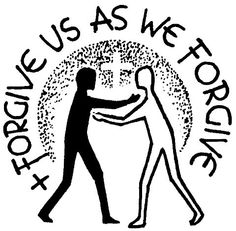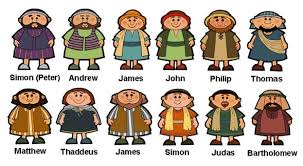John 18:1 – When Jesus had spoken these words, he went out with his disciples across the brook Kidron, where there was a garden, which he and his disciples entered.
At this point, Jesus had said everything he came to earth to say as a prophet. He now moves forward to discharge his duties as our high priest – to make a sacrifice for sin. Only this time, it would be the final, perfect sacrifice himself. Once that was accomplished, he would become our Mediator as well as our King.
The cross is also the time for Jesus to engage and fully defeat his/our enemy, Satan. Although it didn't seem like it to the disciples at the time, we know that the cross is a place of victory for God and for all those who are part of his kingdom.
On his way to the cross, Jesus had to pass over the Kidron brook. This was a small stream which divided the city of Jerusalem from the Mount of Olives. In summer it is almost dry, but it becomes very swollen by rain and/or melting snow during the spring. (There would definitely have been water flowing in the brook as the group walked to the garden.) Eventually, the brook runs in a south-easterly direction and flows into the Dead Sea.
This stream is also known as 'Cedron' or 'Kedron'. It occupies a prominent place in Jewish history, and it is mentioned in many Old Testament passages (I Kings 15:13, II Kings 23:6, etc.).
One of the more interesting things about the book Kidron is that it was the same water that David passed over when he fled from Absalom (II Samuel 15:23). Many scholars believe this particular account of the life of David foreshadowed what happened to Jesus.
As you recall, David had been betrayed by his close advisor, Ahithophel. He was driven out of his rightful kingdom by rebellious Jews who did not want him to reign over them. In humiliation, David crossed the brook with a company of true mourners.
 The parallel is obvious. Jesus had likewise been betrayed by one close to him - Judas. He too was driven out of Israel by rebellious Jews who did not want him to be their king, and he crossed the brook Kidron with a very sorrowful group of disciples. And just like David, Jesus will defeat his enemies and take his rightful place as King!
The parallel is obvious. Jesus had likewise been betrayed by one close to him - Judas. He too was driven out of Israel by rebellious Jews who did not want him to be their king, and he crossed the brook Kidron with a very sorrowful group of disciples. And just like David, Jesus will defeat his enemies and take his rightful place as King!Having passed over the stream, Jesus and the disciples entered the Garden of Gethsemane. This was a place that Jesus frequented during his time on earth (Luke 22:39). Sometimes, when the Jews were particularly enraged at him, he would leave Jerusalem and spend the night there. He also frequently met with his disciples in this location for prayer and teaching.
It was good for the disciples to have a regular meeting place with Jesus. It's a good idea for us too. If we have a specific place and time set aside for meeting God in prayer each day, we are much more likely to pray!
John 18:2 – Now Judas, who betrayed him, also knew the place, for Jesus often met there with his disciples.
Significantly, the garden was a place well known by the traitor, Judas Iscariot. In fact, it was so well known to Judas that Jesus would have avoided it entirely, if his intention was to hide.
This is yet another proof that the sacrifice of Christ was voluntary; it was not a circumstance that was out of his control. He willingly and intentionally went to Gethsemane to present himself to his enemies.
John 10:18 - No man takes it [Jesus' life] from me, but I lay it down of myself. I have power to lay it down, and I have power to take it again. This commandment have I received of my Father.
Commentators note that sin entered the world in a garden (Eden) through the first Adam. Sin was also defeated in a garden (Gethsemane) through the second Adam, Jesus Christ. Hallelujah!
John 18:3 – So Judas, having procured a band of soldiers and some officers from the chief priests and the Pharisees, went there with lanterns and torches and weapons.
All four gospel writers record the betrayal of Jesus (Matthew 26:47-57, Mark 14:43-52, Luke 22:47-53). However, as we noted in our introduction to this gospel, John often gives us details that the other gospel writers omit, while leaving out things they have already recorded at length.
We find one of those instances here. John omits the intense agony/suffering of Jesus as he prayed in the garden, because the other gospels clearly describe it:
Matthew 26:39 -And he went a little farther, and fell on his face, and prayed, saying, O my Father, if it be possible, let this cup pass from me: nevertheless not as I will, but as you will.
John also passes over the narrative of Judas bargaining with the chief priests for 30 pieces of silver in exchange for the life of Jesus (Matthew 26:15) and jumps straight to the actual betrayal of Christ.
Judas came to the garden with a group of Roman soldiers. They were most likely from the company of soldiers who were permanently stationed at the temple. Rome gave this group of soldiers to the Jews for the defense of the temple and they were under the authority of the Jewish high priest.

John tells us that there were also 'officers' within the group Judas brought. The Greek word used for 'officer' literally means 'servant'. These men were probably Jewish members of the Sanhedrin who were also sent by the high priest. Their job was to witness the events of the arrest and report back to the Sanhedrin.
Thus, we see two groups that were bitter enemies (Jews and Romans) united together in their hatred for Christ. Jesus responds to that hate with love; his death will allow both Jews and Gentiles to be reconciled to God.
It makes sense that they would be carrying lamps and torches. Although there would have been a full moon at the time of Passover, the night may have been cloudy and therefore dark. In addition, the soldiers did not know exactly where Jesus was. For all they knew, he might be hiding somewhere, so they were prepared to search caverns, buildings and/or any other dark, shadowy places in order to find him.
John also tells us that this band of soldiers and Jews came armed. The professional soldiers all had swords while the Jews probably had weapons like clubs or staves. All in all, it was a large heavily armed group for the purposes of arresting a single man.
John 18:4 – Then Jesus, knowing all that would happen to him, came forward and said to them, "Whom do you seek?"
Would you like to know what is in your immediate future? If it was a trial or a struggle, would that disturb you or steal your joy and peace? I think it would, which is probably one of the reasons why God does not let us see into the future. Knowing what was about to happen would prevent us from praising God and serving him in the present time. It would rob us of the chance to exercise our faith in God. But that was clearly not the case for Jesus. Although Judas may have been hoping to catch Jesus off guard with this late-night arrest, scripture tells us that Jesus was well aware of all the things that were about to take place (Matthew 20:18-19). So, when Judas and the soldiers showed up, it did not surprise Jesus at all. He was fully prepared to drink the cup that his Father had given him in order to redeem mankind.
John 18:5-6 – They answered him, "Jesus of Nazareth." Jesus said to them, "I am he." Judas, who betrayed him, was standing with them. When Jesus said to them, "I am he," they drew back and fell to the ground.
Judas and the group of soldiers/servants came to the garden with a legal warrant for the arrest of Jesus, fully authorized by the high priest. The warrant no doubt identified Christ as "Jesus of Nazareth" (hence the response from the soldiers). The religious leaders used this particular title because it denied or obscured his true role as Messiah; it was yet another 'slap in the face' of Jesus.
Too bad they were not present to witness the reply of Jesus which was a remarkable display of the power of God!
 "I am he" - these three small words, spoken in a normal tone of voice, lays the entire company prostrate on the ground, as if they had been hit by a bold of lightening!
"I am he" - these three small words, spoken in a normal tone of voice, lays the entire company prostrate on the ground, as if they had been hit by a bold of lightening!Although Christ could easily have killed them all, he did not. His forbearance had two purposes: One, he had no intention of avoiding the cross and two, allowing these men to live would give them a chance to repent after his death.
Here is something to consider: At the time of his betrayal, Jesus stood alone as a lamb ready to be sacrificed, with his glory hidden from the world. Yet, when he identifies himself, it is enough to put armed and courageous men on the ground, with their faces in the dust.
What then, will it be like on the future day of judgment, when Jesus returns to earth in his full glory, accompanied by countless angels, as the Judge of the living and the dead? Who could possibly stand before him then?
Isaiah 11:4 - But with righteousness shall he judge the poor, and decide with equity for the meek of the earth: and he shall strike the earth with the rod of his mouth, and with the breath of his lips shall he slay the wicked.
(See also Revelation 19:11-16). What an awesome God we serve!
Now, to be fair, it should be noted that some scholars take an alternate view of this verse. They do not believe that divine power caused these men to fall on the ground.
In their interpretation, the voice of Jesus produced extreme conviction of sin within the hearts of the soldiers. As they felt the weight of their sin and perceived the righteousness of Christ, it caused them to willingly fall down before him.
It is up to you to determine which interpretation you feel is correct. But in either case, we can agree on the following points:
- Jesus' life was not taken from him – he voluntarily gave it up.
- Righteous people (the disciples) were able to stand in the presence of the Lord, while wicked people (the unbelieving Jews and the Romans) were not.
- You can't be on both sides. Every person must make a choice to be either for Christ or against him.
It is sad to note that Judas, who had been with Jesus at supper that very night, was now standing with 'them' - the enemies of Christ.
John 18:7-8 - So he asked them again, "Whom do you seek?" And they said, "Jesus of Nazareth." Jesus answered, "I told you that I am he. So, if you seek me, let these men go."
I don't know about you, but I find verse seven astonishing. If I had been one of those guards and I was thrown to the ground by just the declaration of Jesus as 'I AM', I like to think that I would abandon the mission to arrest him. I would like to think that I would be smart enough to run for my life and never look back!

Nevertheless, after they get up from the ground, the company is just as willing to arrest Jesus as they were before. Apparently, their hardened hearts can attribute their fall to something (anything) other than the power of God, because they still refuse to acknowledge Jesus as anything other than a man from Nazareth.
For his part, Jesus is just as willing to be seized by them, yet he works to deliver his disciples from their fury.
Read the words of Jesus again. Notice that he was not asking them for a favor, he was issuing a command. Whether they realized it or not, Jesus had the authority in this situation and he was in a position to command them to leave the disciples alone. If they tried to arrest the disciples, things would have ended very differently. This is evidence of the concern and protection that Jesus places upon all his children. The disciples were going to suffer for the gospel, but they were not yet ready to take on that burden. Jesus would not let Satan subject them to suffering that they could not handle.
The same is true for us today. Though we do not know what tomorrow holds, we know that Holy Spirit is right here with us, to strengthen and lead us through all our trials. We know that God will never place a burden upon us without giving us the strength to endure it. He will never lead us into a battle until we have been fully trained and prepared to fight.
John 18:9 – This was to fulfill the word that he had spoken: "Of these whom you gave me I have lost not one."
This is not a word-for-word quote from Jesus, but it is the substance of statements he had already made (See John 17:12 and John 6:39). This type of summary quotation was common in that era and is present several places in the New Testament.
The question is whether Jesus was referring to the spiritual or physical state of the apostles.
In this particular context, it mainly refers to the physical lives of the disciples. God had set them apart for very specific purposes. They needed to remain physically alive in order to bear witness to the life, death, resurrection and gospel of Christ. Their eye-witness testimony was crucial during the formation of the church and the first years of the dispensation of grace. Furthermore, they were to be the first recipients of the outpouring of Holy Spirit. For these reasons, God would not allow any of them to physically die prematurely (be lost).
However, scripture is often fulfilled in more than one sense; this assurance of Christ also applies in a spiritual context as well.
As we mentioned earlier, at this particular time the faith of the apostles was weak. If they had suffered intense persecution right at that particular moment, their faith may have failed. Knowing this, Jesus would not expose them to that trial.
We can rest assured that he protects us in the same way. God grants us divine grace and strength in proportion to our trials, so that we can be victorious in every situation.
John 18:10 – Then Simon Peter, having a sword, drew it and struck the high priest's servant and cut off his right ear. (The servant's name was Malchus.)
All four of the gospels record this event. However, Matthew (26:51), Mark (14:47) and Luke (22:49-50) do not name the servant or the disciple who was involved. This is most likely because Peter and Malchus were both alive at the time the other gospels were written. Since both men had passed away by the time John wrote, so there was no longer a need to keep their names a secret.
In either case, it is commonly felt among scholars that since Peter had recently promised to give his life for Jesus, he was now emboldened to keep his promise. It is also felt that he was probably aiming to split Malchus' head in two, but he missed and was only able to slice off his ear.
But Jesus put a stop to Peter's rebellion immediately and miraculously reattached Malchus' ear.
Luke 22:51 -And Jesus answered and said, No more of this. And he touched his ear, and healed him.
Interestingly, even this second irrefutable miracle does not influence the enemies of Christ; they are still intent on arresting him. But before they do, Jesus has something to say to Peter.
John 18:11 – So Jesus said to Peter, "Put your sword into its sheath; shall I not drink the cup that the Father has given me?"
Jesus rebukes Peter by telling him to put his sword away. There are several lessons to be learned here.
First, scripture tells us that it is God who gives or allows certain people to have civil authority (Romans 1:1-3), and that he gives this authority for our own good/benefit. The authority of these rulers is designed to protect the innocent and punish evil; we are to obey them unless they are in direct opposition to God (Titus 3:1). Furthermore, Jesus had commanded his followers not to resist evil (Matthew 5:39).
The men who came to arrest Jesus did so with a valid warrant, duly authorized by the high priest. Therefore, while we sympathize with Peter's emotions, he was acting in rebellion against those God had set in authority (and against the will of God himself).
Second, Peter was acting out of emotion. Though his heart was sincere, he was sincerely wrong. He wanted to 'save' Jesus because of his own selfish desires. Specifically, he did not want Jesus to suffer and die, because he wanted to continue walking with him. He probably also wanted that earthly kingdom that the Jews so passionately believed in.
But as we know, this was not the will of God. Jesus had clearly stated that the time of his suffering was at hand. So while Peter seemed to be fighting for Christ, he was really fighting against him.
Finally, Peter foolishly exposed himself and his fellow disciples to danger. Jesus had just commanded the soldiers to take him and leave his followers alone. The implication was that Jesus would willingly go and his disciples wouldn't cause any problems. So, when Peter suddenly attacks one of the servants, it effectively ruins the promise Jesus just made.

If Peter had actually lopped off Malchus' head, things would certainly have spiraled out of control at that point and all of the disciples could have been killed. Fortunately, Jesus had things well under control and he was able to diffuse the situation by healing Malchus.
Peter's main mistake was depending on a sword of iron rather than the sword of the Spirit. Scripture tells us that victory for the kingdom is first won in the spiritual realm. Only then does it manifest in the natural realm.
2 Corinthians 10:3-4 - For though we walk in the flesh, we do not war according to the flesh: (For the weapons of our warfare are not carnal, but mighty through God to the pulling down of strongholds;)
For us, this means that when we encounter a situation that needs to be changed or an instance where we want to manifest Christ's authority, our first steps must be spiritual.
After we assess the problem, we need to find scriptures that speak to the situation. We need to pray, fast, anoint and make spiritual declarations. Then, when Holy Spirit gives us specific instruction, we can victoriously take action in that situation.
Now, what is the 'cup' that Jesus mentions here?
In scripture, 'the cup' is a figurative expression that denotes 'drinking' or partaking of the contents within it. In both the Old and New Testaments the cup and its contents represent one's lot/portion in life or the events/circumstances which one must walk through.
Sometimes, the contents of the 'cup' cause sorrow. This would include things like God's wrath, judgment or affliction (Isaiah 51:17, Jeremiah 25:15-16, Psalms 11:6, etc).
However, the contents of the 'cup' can also cause joy; they can represent the blessings of God (Psalms 23:5, Psalms 116:13, I Corinthians 10:16).
In this particular case, Jesus is referring to his sufferings on earth, which were required in order to bring about the salvation of man. This cup included things like taking on the sin of the world, being separated from the Father, physical pain (like stripes on his back and the crucifixion) and humiliation.
Even though it was a bitter cup, Jesus willingly accepted it because he loved the Father and he knew the Father loved him, and this suffering was the only way to save mankind.
Although it is not recorded in the book of John, the other gospels tell us that Jesus had already asked the Father to spare him from drinking this cup of suffering, yet if that were not possible, he would drink it:
Matthew 26:42 - He went away again the second time, and prayed, saying, O my Father, if this cup may not pass away from me, except I drink it, your will be done.
Jesus had already determined to drink this cup of suffering, so when Peter tried to come between him and the Father's will, he was rebuked by Jesus.
Let me offer you some encouragement:
Although we all know it is true, it never hurts to remind ourselves that Jesus won the victory over Satan long ago on the cross. Satan is a defeated foe.
As we look around the world today, it may not seem like that is true, but don't be discouraged by what you see. Instead, be fired up! If we are not seeing revival, healing, miracles and deliverances like we want to, let's press into the presence of God and find out what is lacking on our part. Let's find out how we can bring the victory of heaven to bear on our current circumstances.
Let me offer you some relief:
In this post, we find that Peter once again 'blew it'. In fact, he will do so again in our next post. I don't know about you, but I feel I have something in common with him, because I have also done the wrong thing at the worst possible moment!
If that is you, take heart. God forgave Peter, he forgave me and he will forgive you too!
Let me offer you some strength:
When an entire company of soldiers met Jesus and the disciples in the garden, it looked like an overwhelming force. In the natural realm, it was. But in the spiritual realm, there is no contest – the forces of heaven are far, far superior to the forces of hell (II Kings 6:15-17). The light of Christ always causes darkness to flee.
In your daily Christian walk, don't fear the seemingly overwhelming forces of darkness around you. Instead, let your light shine for Christ. Keep it shining brightly and allow it to be a witness to those around you who are desperate for a touch from God.














































